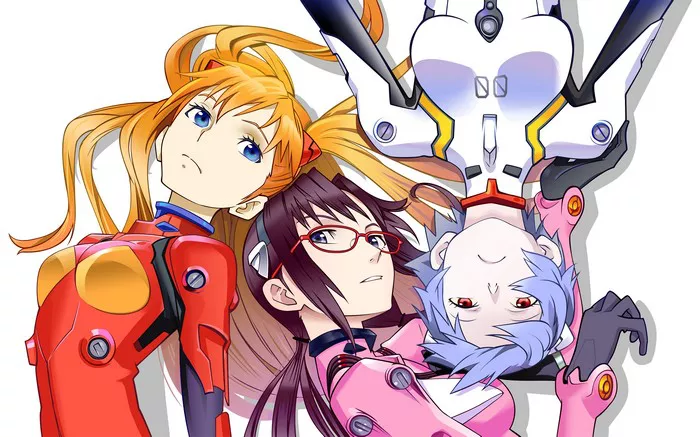Neon Genesis Evangelion,” created by Hideaki Anno, is a groundbreaking anime series renowned for its complex characters, psychological themes, and intricate narrative. As viewers journey through the series, they are met with moments of triumph, despair, and introspection. However, when it comes to the ending of “Evangelion,” opinions are divided. Some argue that it offers a sense of closure and hope, while others perceive it as ambiguous and melancholic. In this article, we will delve into the ending of “Evangelion,” dissect its themes and symbolism, and explore whether the ending of “Evangelion” can be considered happy.
The Original Ending: Ambiguity and Interpretation
The original ending of “Neon Genesis Evangelion,” often referred to as “The End of Evangelion,” aired in 1997 and left a profound impact on viewers. In these final episodes, the series takes a surreal and introspective turn, delving deep into the psyche of its protagonist, Shinji Ikari, and exploring themes of identity, isolation, and human connection.
One of the most controversial aspects of the original ending is its abstract and open-ended nature. As Shinji grapples with his inner demons and confronts the Instrumentality Project—a plan to merge all human consciousness into a single entity—the boundaries between reality and illusion blur, leaving viewers questioning the nature of existence and the meaning of individuality.
The climax of “The End of Evangelion” is both visually stunning and emotionally intense, culminating in a sequence of surreal imagery and introspective dialogue. As Shinji comes to terms with his own insecurities and fears, he ultimately makes a choice that will shape the fate of humanity and determine the course of his own existence.
Themes of Redemption and Connection
Despite its ambiguity, the ending of “Evangelion” can be interpreted as a story of redemption and human connection. Throughout the series, Shinji struggles with feelings of loneliness, inadequacy, and alienation, but as he confronts his inner demons and learns to accept himself for who he is, he begins to forge genuine connections with others.
One of the central themes of “Evangelion” is the importance of human relationships and the power of empathy and understanding. Despite their flaws and differences, the characters in the series find solace and strength in each other, forming bonds that transcend the barriers of pain and suffering.
In the final moments of “The End of Evangelion,” as Shinji emerges from the depths of his own consciousness and confronts the world around him, he is met with the presence of others—individuals who have faced their own struggles and overcome their own demons. It is through these connections that Shinji finds a sense of purpose and belonging, transcending his own isolation and embracing the complexity of human existence.
The Rebuild of Evangelion: Alternative Endings and Interpretations
In addition to the original series, “Evangelion” has been revisited and reimagined in the form of the Rebuild of Evangelion film series. These films offer alternative interpretations of the story and characters, introducing new plot elements and diverging from the narrative of the original series.
In the Rebuild films, particularly the final installment, “Evangelion: 3.0+1.0 Thrice Upon a Time,” viewers are presented with a different perspective on the ending of “Evangelion.” While still retaining elements of ambiguity and introspection, the conclusion of the Rebuild series offers a sense of closure and resolution, with characters confronting their past traumas and embracing the possibility of a brighter future.
Interpreting Happiness in Evangelion
The question of whether “Evangelion” has a happy ending ultimately depends on one’s interpretation of happiness and fulfillment. While the series is undeniably dark and introspective, it also explores themes of resilience, redemption, and the human capacity for growth and change.
For some viewers, the ending of “Evangelion” offers a glimmer of hope amidst the chaos and uncertainty of the world. It is a testament to the resilience of the human spirit and the power of connection to transcend even the most daunting challenges. For others, the ending may be seen as bittersweet or even tragic, reflecting the complexities and contradictions of life itself.
In the end, the beauty of “Evangelion” lies in its ability to provoke thought and inspire discussion long after the credits have rolled. Whether viewed as a tale of triumph or tragedy, it remains a timeless masterpiece that continues to captivate audiences and challenge the boundaries of storytelling in anime.
Conclusion
In conclusion, the ending of “Neon Genesis Evangelion” is a subject of much debate and interpretation among fans and critics alike. While some may perceive it as a happy ending, others may find it to be ambiguous or melancholic. Ultimately, the beauty of “Evangelion” lies in its ability to evoke a wide range of emotions and provoke deep reflection on the nature of existence, identity, and human connection. Whether viewed through the lens of redemption, tragedy, or something in between, the ending of “Evangelion” remains a powerful and thought-provoking conclusion to an unforgettable journey.


